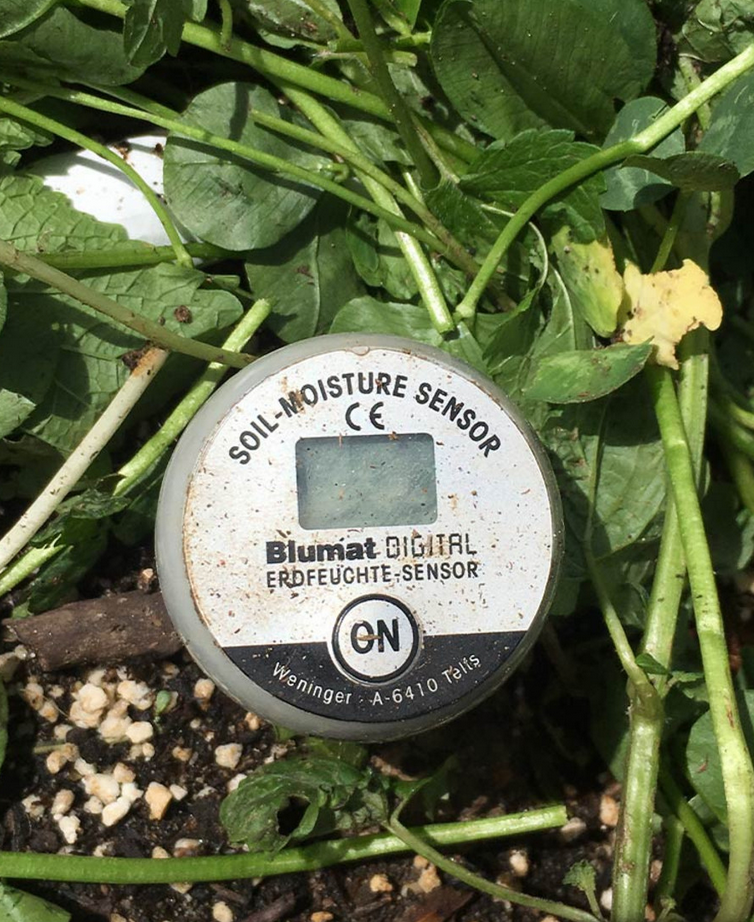The Ultimate Overview to Wetness Meters: A Comprehensive Overview and Exactly How They Can Conserve You Money
Wetness meters offer as indispensable tools in detecting and monitoring moisture material in products, assisting in avoiding expensive problems and guaranteeing the top quality of products. Understanding the nuances of various kinds of moisture meters, their applications, and the prospective cost-saving advantages they supply can be a game-changer for experts and organizations alike.
Kinds Of Moisture Meters
One common type is the pin-type moisture meter, which measures the electrical resistance in between 2 pins put into a product. Pinless dampness meters, on the various other hand, usage electro-magnetic sensor plates to check a bigger location without causing damage to the material's surface area.

Furthermore, there are also specialized wetness meters developed for specific products like soil, grain, or hay. These meters provide accurate wetness analyses customized to the unique residential or commercial properties of the product being checked. Infrared moisture meters measure the thermal properties of a product to determine its wetness content non-invasively, making them beneficial for applications where pin or pinless meters might not appropriate. Comprehending the various types of dampness meters available can help markets pick one of the most proper tool for their certain moisture dimension demands.

Benefits of Making Use Of Moisture Meters
Dampness meters supply indispensable benefits in properly monitoring and evaluating wetness degrees in varied materials and settings (Moisture Meter). Among the primary benefits of using wetness meters is the avoidance of prospective damages created by excess dampness. By discovering and attending to high dampness degrees beforehand, moisture meters aid to stop mold growth, rot, and structural damage in buildings, saving both money and time on fixings. In addition, dampness meters help in making certain the top quality of materials throughout building or production processes. By precisely measuring moisture content, these devices assist preserve the stability of wood, drywall, concrete, and other products, lowering the threat of defects or failures.
In addition, using moisture meters can lead to enhanced power efficiency. In agricultural setups, moisture meters play a crucial function in maximizing crop yields by allowing farmers to keep an eye on dirt moisture levels and make educated watering decisions.
Exactly How to Select the Right Wetness Meter
Picking the appropriate wetness meter includes taking into consideration key aspects such as product compatibility, measurement variety, and calibration precision. When picking a moisture meter, it's vital to make sure that the meter is ideal for the certain product you will certainly be screening. Various products have differing electrical buildings that can influence dampness analyses, so his response picking a meter designed for your material is essential for precise results. In addition, consider the measurement series of the moisture meter. Guarantee that the meter can discover wetness levels within the array needed for your applications. Calibration precision is an additional essential variable to maintain in mind. Go with a wetness meter with trustworthy calibration to guarantee exact and consistent readings. Some meters might call for routine calibration modifications, so comprehending the calibration process is necessary. By carefully assessing these elements, you can select a wetness meter that meets your needs and gives precise wetness dimensions for your tasks.
Correct Strategies for Wetness Meter Usage

Expense Cost Savings Via Wetness Meter Applications
Exactly how can the strategic utilization of dampness meters lead to considerable cost financial savings across different industries? In the farming market, moisture meters help in determining the ideal time Recommended Reading for harvesting crops, protecting against over-drying or excess dampness that can affect the final product's top quality.
Similarly, in building and construction, dampness meters help stop costly damages by detecting wetness degrees in building materials, such as timber or concrete, which can lead to structural problems otherwise dealt with without delay. By identifying issue locations early on, professionals can take rehabilitative measures to avoid extensive repairs or replacements, eventually conserving time and cash.
Furthermore, in the food processing market, wetness meters are important for checking item quality and guaranteeing compliance with security guidelines. By properly gauging dampness content in food, producers can stop wasting, keep quality, and minimize waste, causing significant price savings. Generally, the calculated application of moisture meters is an important investment that can result in considerable expense reductions and enhanced efficiency across various sectors.
Verdict
Finally, dampness meters are beneficial devices for gauging anonymous and finding wetness levels in various products. By utilizing the best moisture meter and adhering to appropriate strategies, customers can successfully avoid costly damages brought on by excess dampness. Spending in a quality dampness meter can cause significant price financial savings in the long run by identifying prospective problems at an early stage and enabling punctual remediation. Inevitably, wetness meters are important tools for preserving the stability and longevity of products and structures.
Moisture meters offer as important devices in spotting and monitoring moisture material in materials, assisting in preventing expensive problems and ensuring the high quality of items. Infrared dampness meters measure the thermal properties of a product to determine its wetness web content non-invasively, making them beneficial for applications where pin or pinless meters may not be appropriate.Dampness meters supply invaluable benefits in properly analyzing and keeping track of dampness degrees in varied materials and settings. In farming setups, dampness meters play a crucial role in optimizing crop yields by allowing farmers to keep track of soil wetness levels and make notified irrigation decisions.In conclusion, moisture meters are important devices for finding and gauging dampness degrees in different materials.